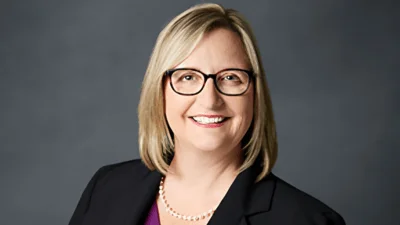Perry Memorial Hospital issued the following announcement on Oct. 25
When it comes to getting a vaccine to protect yourself against a disease like COVID-19, booster shots can be a normal part of the vaccination process.
“Booster” basically refers to an extra dose of a vaccine after the original (or primary) dose is administered. These boosters can be weeks, months or years later, according to Sandy Salverson, PharmD, vice president of Pharmacy Operations at OSF HealthCare.
“Most adults have a memory of having to get a booster for a childhood disease, such as measles, whooping cough or meningitis. Or for a disease like tetanus, where booster shots are recommended every 10 years as the original immunity wanes,” Sandy said.
What do COVID-19 booster shots do?
Some vaccines are administered using the strategy of giving the original (or primary) dose along with a booster dose. With the original dose, the immune system is primed to recognize and produce antibodies against the virus it was created to defend.
Booster shots are administered to remind the body’s immune system about the virus it needs to defend against. This improves or gives the immune system a boost.
Third doses of COVID-19 vaccine
It’s recommended by the U.S. Centers for Disease Control and Prevention that moderately to severely immunocompromised individuals who received the two-dose series of either Pfizer or Moderna get a third dose of the vaccine 28 days after receiving their second dose.
What’s the difference between a third dose and a booster shot?
“A booster is given when a person has completed their vaccine series and the immunity protection against the virus begins to decrease with time, as data has shown,” Sandy said. “The third dose is strictly to improve the immunity response of those moderately to severely immunocompromised individuals and becomes part of their primary series.”
These individuals are especially vulnerable to COVID-19 and are more at risk of serious, prolonged illness. Their level of immunity following the two original doses of the vaccine is lower than people who are not immunocompromised, Sandy said.
“This isn’t because the vaccine isn’t effective. It’s because the immune systems of these individuals need the additional dose as part of their primary series to reach the level of immunity that best protects them from severe illness or hospitalization,” Sandy said.
COVID-19 boosters
The Federal Drug Administration (FDA) and the CDC have approved all three vaccines available – Moderna, Pfizer and Johnson & Johnson – for use as a booster shot.
Guidance calls for Moderna or Pfizer COVID-19 booster shots to be six months after the primary two-dose series. The boosters are available to anyone age 65 and older who received those vaccines and others 18 and older who qualify based on their health history, living situation and employment.
As for Johnson & Johnson, the recommendation is those 18 years or older who received the one-dose vaccine get a booster two months later.
Get the brand available
The federal agencies also approved a “mix-and-match” approach to getting a booster. This means:
- If Pfizer was your primary two-dose series, you can get a booster six months later of either Pfizer, Moderna or Johnson & Johnson.
- If Moderna was your primary two-dose series, you can get a booster six months later of either Moderna, Pfizer or Johnson & Johnson.
- If you received the one-dose Johnson & Johnson vaccine, you can get a booster two months later of either Johnson & Johnson, Pfizer or Moderna.
Schedule your appointment
If you qualify for a booster, or are unsure if you qualify, contact your primary care provider or schedule an appointment through OSF MyChart.
Original source can be found here.






 Alerts Sign-up
Alerts Sign-up